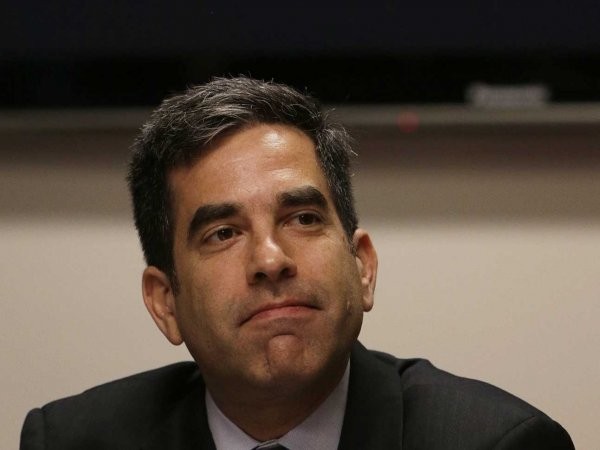SEC Exam Chief Sends Warning on Wrap Accounts
Post on: 16 Март, 2015 No Comment

Andrew Bowden of OCIE also provides update on OCIE’s never-examined advisor initiative
More On Legal & Compliance
from The Advisor’s Professional Library
- Pay-to-Play Rule Violating the pay-to-play rule can result in serious consequences, and RIAs should adopt robust policies and procedures to prevent and detect contributions made to influence the selection of the firm by a government entity. Agency and Principal Transactions In passing Section 206(3) of the Investment Advisers Act, Congress recognized that principal and agency transactions can be harmful to clients. Such transactions create the opportunity for RIAs to engage in self-dealing.
The Securities and Exchange Commissions exam chief recently warned sponsors of wrap fee programs to do a better job of monitoring and disclosing the number of step-out trades performed by the wrap accounts investment managers, as these types of trades require clients to pay a fee on top of the wrap fee.
The issue we have is one of disclosure, regarding wrap accounts, Andrew Bowden, head of the SECs Office of Compliance Inspections and Examinations, told attendees at the CFA Institutes Global Investment Performance Standards (GIPS) Annual Conference in Boston Sept. 19. If youre a wrap fee sponsor, its your responsibility to actually monitor the frequency with which the managers participating in your program are actually stepping out trades so that you can make proper disclosures.
Bowden said that the agencys 30 exams of wrap accounts to date had found that sponsors were unaware of how often this [step-out trading] activity is taking place.
Step-out trading is the practice of one brokerage executing an order on behalf of a client but giving credit (and part of the commission) to another brokerage.
Bowden explained that wrap fee sponsors tell clients that investment managers will direct trades to the sponsor to be executed as part of the wrap fee, and that the investment managers may step out certain trades and receive an extra commission, however the commission paid to the broker gets passed through to the client as a fee. We are finding that the investment managers are stepping out a lot of trades that should be directed to the wrap fee sponsor, Bowden said.
Standard disclosure to clients shouldnt be that from time to time the investment manager may step out trades and that you [the client] may pay a commission, Bowden said. The disclosure should be that your investment manager will step out trades, 30%, 50%, 80% of the time and youre going to pay a commission in addition to your wrap fee for those.
OCIE sent recently an Information Request List to registered investment advisors regarding their wrap fee programs, signaling such programs will face scrutiny during upcoming exams.

The SEC also recently won a court victory against an advisor who lied to his clients to get them to switch their accounts so that he could pocket a higher wrap fee.
Bowden also gave attendees an update on OCIEs never-examined advisor initiative, which started in February and is directed at advisors registered with the SEC for three years or longer, excluding advisors to private funds.
He said advisors in the never-examined advisor category total about 1,000, and that 225 firms have been examined thus far, with more [exams] underway.
OCIE examiners are using two exam approaches: risk-assessment exam, which takes a broad look at an advisors entire business, as well as more-focused reviews that zero in on one specific area.
If that area checks out, [the examiner] gets a good sense of the individuals, the control program at the firm, then you close your books and you leave and go. If you come in and dig in on one area and you see widespread problems and you have concerns about the control program then [the examiner] can add more [items] to the review list during the exam or decide that the firm should have a second review, he said.
The focused review, he said, looks at adequacy of the firms compliance program, compliance with the custody rule, marketing and advertising as well as accuracy of disclosures and filings and portfolio management issues.
OCIE, Bowden said, has also created a pilot program in five regions Boston, Los Angeles, New York, Chicago and San Francisco in which examiners make calls to new registrants. This program has gotten attention, he said. Examiners in those regions call new registrants to get information on who the chief compliance officer is, the CCOs background, as well as the firms business model. Examiners, Bowden said, will spend six to eight hours prepping before making that call, and the call will last from 30 to 60 minutes.
Its been great. It provides us with information that helps us know where we should allocate our resources and go out on exams.














